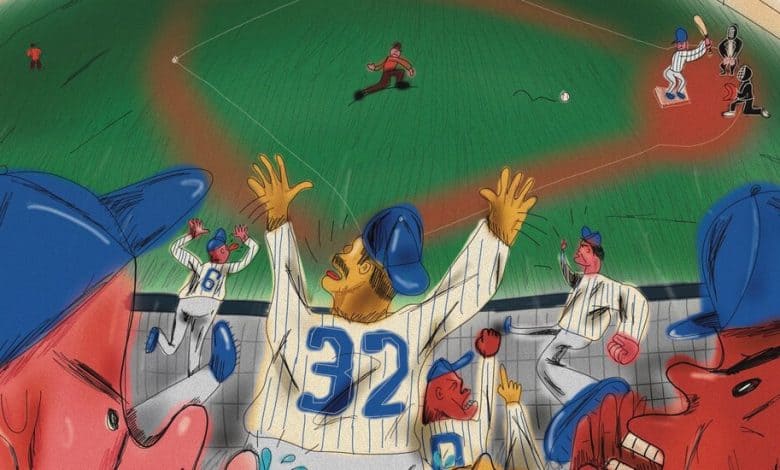Hey, Losers! Here’s How to Bring Baseball’s Very Boring Era to an End.

Last year, Major League Baseball instituted a slew of new rules that were largely intended to have a single effect: to speed up the game and make it more watchable for fans.
Despite some early wariness from players about things like pitch clocks and the predictable moaning of baseball traditionalists, who’ve always measured their openness to change in geologic time, the updates were eventually celebrated as a near-universal success story. Action in the form of runs scored and stolen bases went up, even as the average time of a nine-inning game went way down — sliced by nearly 25 minutes from the previous season.
Additional rule tweaks are in store for the 2024 season, as M.L.B. hopes to chart an even brighter and more boredom-free future. But if baseball truly wants to up the drama of its games and win back the hearts, minds and eyeballs of fans who’ve been abandoning America’s pastime in favor of other sports, perhaps it needs to look to the past. Which is to say: It’s time to bring back bench jockeying.
In its early days, in the mid-19th century, baseball was seen as a genteel sport, defined by guidelines of ethical behavior that were agreed upon by gentlemen’s clubs. All that changed in the 1880s, when a ballplayer named Arlie Latham started making a whole lot of noise. As a player, Latham peaked in the 1887 season, in which he batted .316, stole 129 bases and scored 163 runs. But his biggest contributions can’t be captured with statistics: Latham’s legacy was built on his pestering antics — a voluble and ruthless brand of psychological gamesmanship that laid waste to the sport’s gentlemanly mores.
In those days, ballplayers served as base coaches, and Latham in that role was unrelenting in his efforts to antagonize and disconcert the other team. He’d yell, insult and heckle; he’d try to interrupt a pitcher’s concentration by running up and down the baseline — a tactic that was widely frowned upon and led to the adoption of the designated coach’s box. Newspapers noted his “insane whooping,” “incessant howling” and “disgusting mouthings,” but Latham’s team kept winning. Before long, other teams started howling, too.
Thus emerged the great baseball tradition known as bench jockeying — the practice of showering one’s opponents with verbal abuse in an attempt to disrupt their focus or otherwise screw up their on-field performance. The legendary baseball scribe J. Roy Stockton once called it “probably the greatest cruelty in the American sports picture.” Today, we’d just call it trash talk.